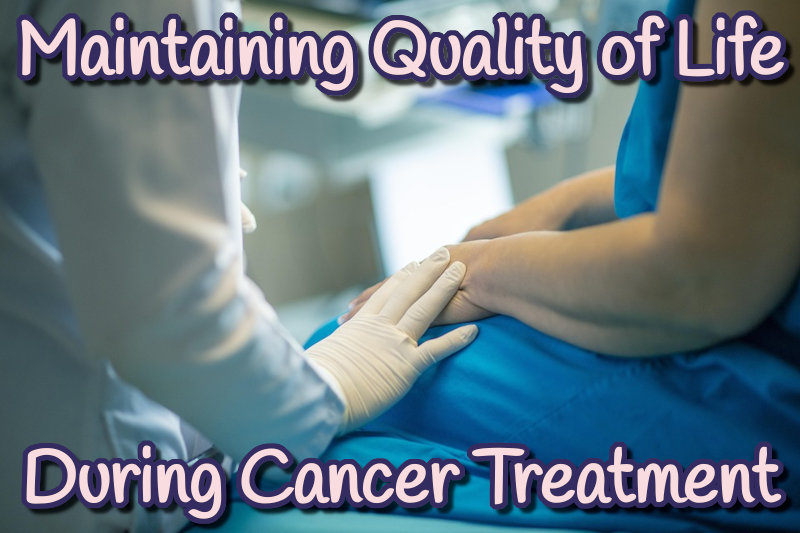Living with Cancer

October 19th, 2024 | Cancer
Maintaining Quality of Life During Treatment
A cancer diagnosis can significantly impact one’s quality of life, both physically and mentally. However, maintaining a good quality of life throughout cancer treatment is definitely possible with the right strategies and support. This article will explore how patients can effectively navigate treatment while simultaneously supporting their mental and physical wellbeing.
Managing physical symptoms and side effects
Perhaps one of the greatest challenges associated with cancer treatment are the side effects. These will differ depending on the treatment and type of cancer, but typical symptoms will include things like pain, drowsiness, nausea, and appetite loss.
- Fatigue. Fatigue is super common during cancer treatment, where patients tend to feel overly tired even with adequate rest. To combat fatigue, you can try incorporating in some gentle physical activity. This can be things like stretching or walking, which can help to improve your energy levels. Additionally, a regular sleep schedule and adequate rest can also support energy levels.
- Nausea and appetite loss. Treatment can often bring about nausea, making it difficult for patients to eat enough. This can be difficult, as proper nutrition is essential for energy levels and healing. To combat nausea, eating smaller but more frequent meals and avoiding trigger foods can help. Additionally, working with a nutritionist specializing in cancer can be beneficial.
- Pain management. Cancer-related pain can be both short-term and chronic. Adequate pain management is essential for maintaining your wellbeing. Thus, patients should work with their healthcare providers to manage their pain symptoms via medication, physical therapy, and alternative medicine such as massage or acupuncture.
Managing mental health
Cancer diagnosis and treatment can take a major toll on your mental health, but a few strategies can support you emotionally during this time.
- Counseling. Therapy can be incredibly helpful when navigating cancer, working with a professional to help manage your emotions and the stress associated with treatment. Cognitive behavioral therapy (CBT) is one method that can help patients develop positive coping mechanisms and reframe their negative thoughts.
- Support groups. Although it’s unfortunate that cancer is so common, the benefit is that there is always a network of people going through the same thing you are. Sharing your experiences, both positive and negative, with others who understand your condition can prevent feelings of isolation and provide a support system.
Recent Posts
- Finding Your Calm: Relaxation Techniques for New Parents
- Sip Your Way to Relief: Hydration & Bland Drinks for Chemotherapy Nausea
- Surviving Valentine’s Day: A Gentle Guide for the Morning Sickness Warrior
- Managing Chemotherapy-Related Anxiety: A Guide to Finding Your Strength
- Treat the Amazing New Mom: Self-Gifting Ideas for Postpartum Recovery
Categories
- All-Natural (4)
- Blog (47)
- Cancer (79)
- Diet (15)
- Holidays (27)
- Lifestyle (69)
- Motion Sickness (44)
- Nausea (106)
- New Mothers (42)
- Oncology Testimonials (3)
- Prebiotics (1)
- Preggie Products (11)
- Preggie Testimonial (24)
- Pregnancy (160)
- Queasy Products (7)
- Queasy Testimonial (17)